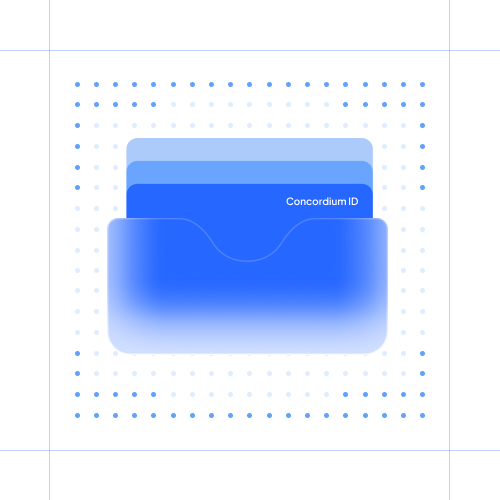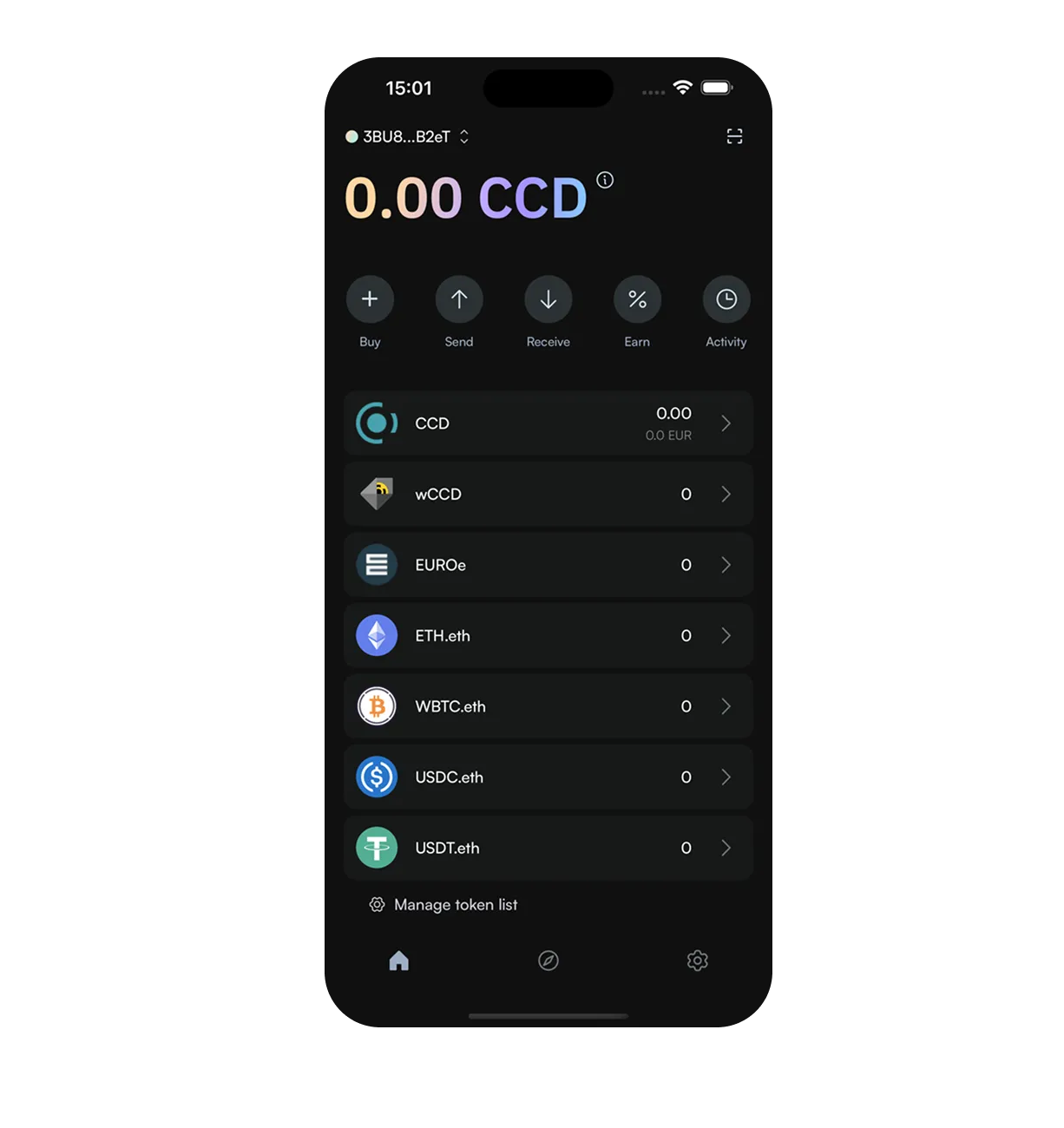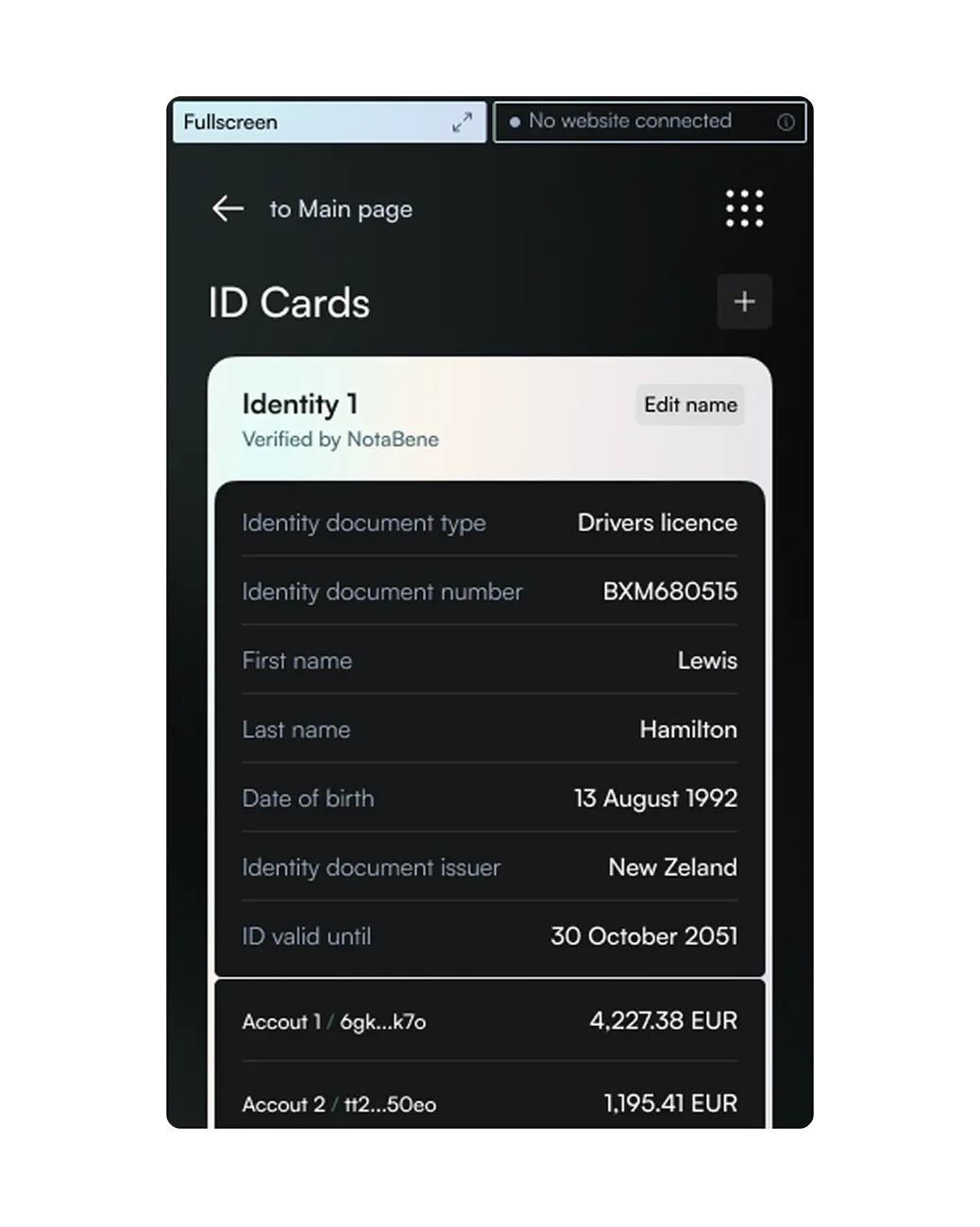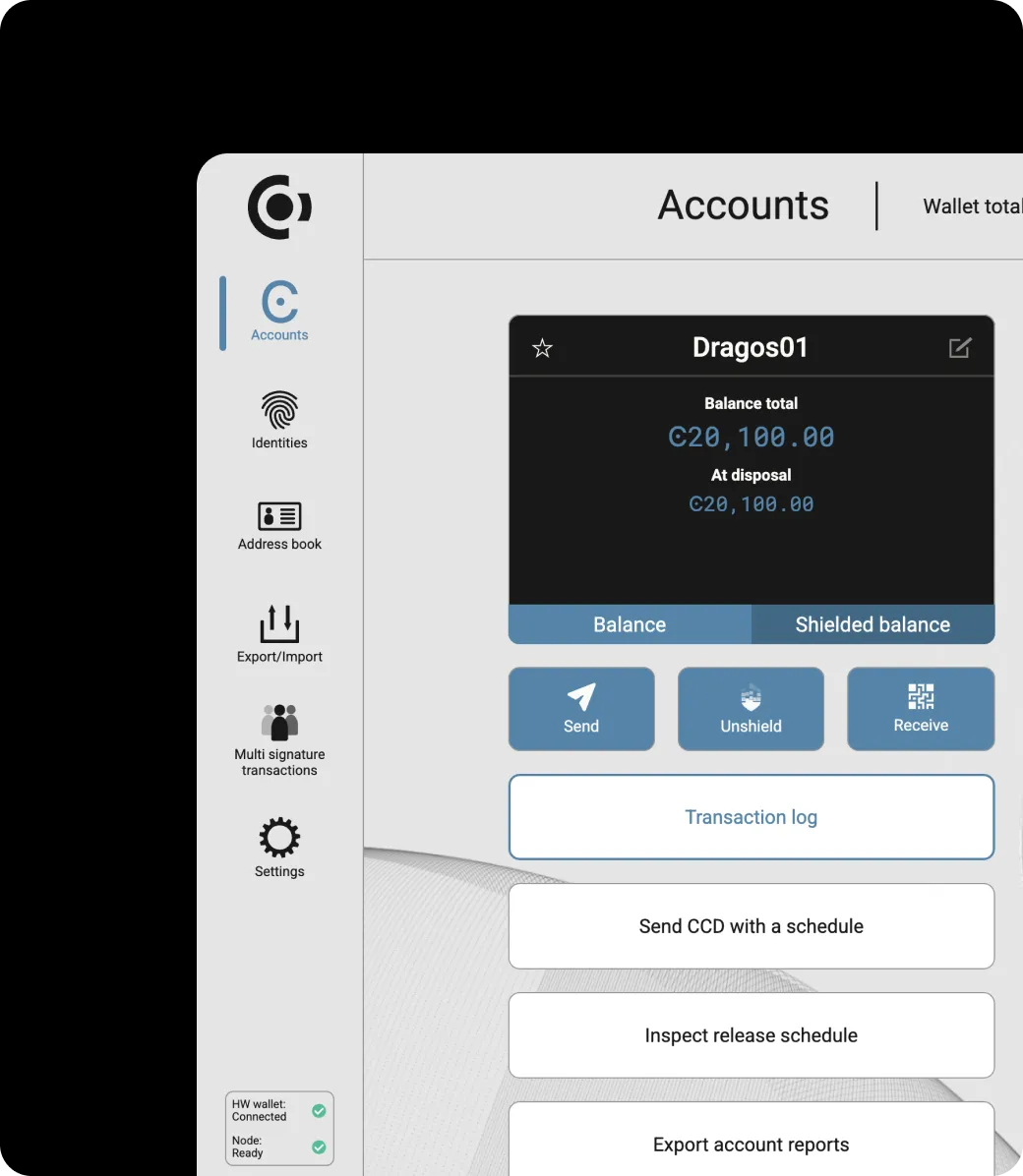Safle Wallet
A sleek, non-custodial wallet for managing CCD and Concordium assets. Multi-chain, mobile and browser-ready — with full control and secure self-custody.
Step into Web3 with a wallet that does more than store assets. The Concordium Wallet brings compliance-ready identity verification and user privacy to every Web3 move.

The Concordium Wallet combines protocol-level ID with zero-knowledge privacy, giving you verified access without exposing your identity. Transact, stake, and build across platforms, all with built-in compliance-readiness, enterprise-grade security, and full control.
Stake CCD in one click. Secure the network and earn rewards, no third-party service required.
Protect your assets with a seed phrase or encrypted file backups, depending on the wallet you choose.
Create a ZKP-based identity directly in your wallet to protect your privacy across dApps and services.
Send, receive, and manage CCD and CIS-2 tokens, as well as PLTs purpose-built for PayFi applications like Verify & Pay and stablecoins.
Concordium offers three main wallet options, each catering to different user requirements.
The Concordium Wallet is available on iOS and Android.
Full-featured mobile wallet
Identity and account management
Staking, NFTs, and dApp connectivity
Ideal for: Everyday users who want mobility with full functionality.


The Concordium Wallet for Web is a browser extension for Chrome, Brave, Opera, and Edge.
Manage tokens, connect to dApps
ID and account management
Ideal for: Users who prefer desktop access and developers interacting with dApps.
The Concordium Desktop Wallet offers the highest level of security.
Requires a Ledger device (Nano S+, X, Flex, or Stax)
Supports multi-sig accounts, scheduled transfers
Ideal for: Institutions, validators, or anyone requiring hardware-secured approvals.

Use your favorite multi-chain wallets to access the Concordium network, hold CCD, and interact securely with Web3.
A sleek, non-custodial wallet for managing CCD and Concordium assets. Multi-chain, mobile and browser-ready — with full control and secure self-custody.
A non-custodial, multi-chain wallet now integrated with Concordium via the Concordium ID App. Hold CCD and access the network securely on mobile or browser.
A secure, non-custodial wallet for managing Bitcoin. Mobile and browser-ready — with full control, seamless transactions, and true self-custody.
Global leader in digital asset security providing industry-grade hardware wallets, crypto custody solutions, and secure Web3 access.
Enable seamless and secure identity verification across supported wallets, dApps, and services.

A standalone mobile app for Android and iOS that enables secure Concordium account creation through third-party wallets. Future updates will support privacy-preserving ID verification on dApps and merchant websites, putting users in control of identity across Web3.
The latest news, tech updates, and resources.